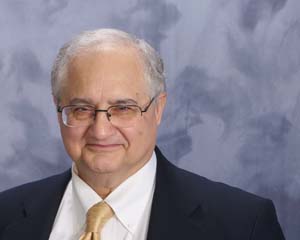About Us
Introduction
Distance-Educator.com is the pioneer portal for professionals in the field of distance education and elearning since 1995. It is a starting point for thousands of professionals when they are looking for timely information, news, research articles, white papers, tools, and many other similar resources about distance education and eLearning. The portal offers a comprehensive window to the world of teaching, learning, training, and performance development at a distance. We connect hundreds of thousands of users each month to their favorite subjects, tools, and experts while covering the news, and providing them with recent research results. We do not compete with any publication, organization, or conference in the field. We cover them all, connect to them, and offer timely news and information about them. Distance-Educator.com was inducted to the United States Distance Learning Association Hall of Fame in 2010.
The technological revolution has brought networked computing to training and education. This revolution has the potential to democratize learning and training, thus fundamentally transforming how people learn throughout their lives. Distance-Educator.com has been involved in this revolution from the beginning and this is the place to start your search for any and everything related to distance education and elearning. If there is a quality resource, news item, or issue to address we point to it, provide the news or do the research to bring you the best information available.
Founder and Editor – Dr. Farhad (Fred) Saba
Distance-Educator.com was founded and is edited by Dr. Farhad (Fred) Saba who has more than 35 years of experience in implementing and managing large scale distance education systems.
Dr. Saba is professor Emeritus of Educational Technology at San Diego State University (1984-present), where he teaches courses on distance education. He has been involved in the field of distance education since 1973, first as the Managing Director of Educational Radio and Television of Iran (1973-1978), and then as the Director of the Telecommunications Division at the University of Connecticut (1979-1984).
Dr. Saba has authored more than 100 articles and chapters in books. He has the distinct honor to be the first winner of the Charles A. Wedemeyer award given to scholars who have made significant contributions to research and theory building in the field of distance education. Dr. Saba has presented in professional conferences in many countries including Afghanistan, The People’s Republic of China, Great Britain, France, Malaysia, Mexico, Sweden, Switzerland (The United Nations), and Turkey. He is on the editorial board of the American Journal of Distance Education, the International Review of Distance and Open Learning, MERLOT’s Journal of Online Learning and Teaching, Asia Pacific Education Review, and the Turkish Online Journal of Distance Education.
His consulting work has included many corporations and public institutions: Apple Computer Inc., Digital Equipment Corporation (merged with Hewlett Packard through Compaq), Nortel, US Department of Education, Office of the Governor of the State of Connecticut, Office of the Chancellor of the California State University system, the World Bank, San Diego County Office of Education, Harvard Business School Publishing, Brigham Young University and the University of Connecticut.
Dr. Saba earned his PhD in Instructional Design, Development, and Evaluation from Syracuse University, and an MA, and BA in Broadcast Communication Arts from San Francisco State University.
Dr. Saba’s Selected Publications
F. Saba (2012). A systems approach to the future of distance education in colleges and universities: Research, development, and implementation. Continuing Higher Education Review. 76, 30-37.
F. Saba (2011). Distance education in the United States: Past, present, future. Educational Technology, 51 (6) 11-18.
F. Saba (2008). Learning management systems of the future: A theoretical framework and design. Journal of Online Learning and Teaching, 4 (2).
|
|








